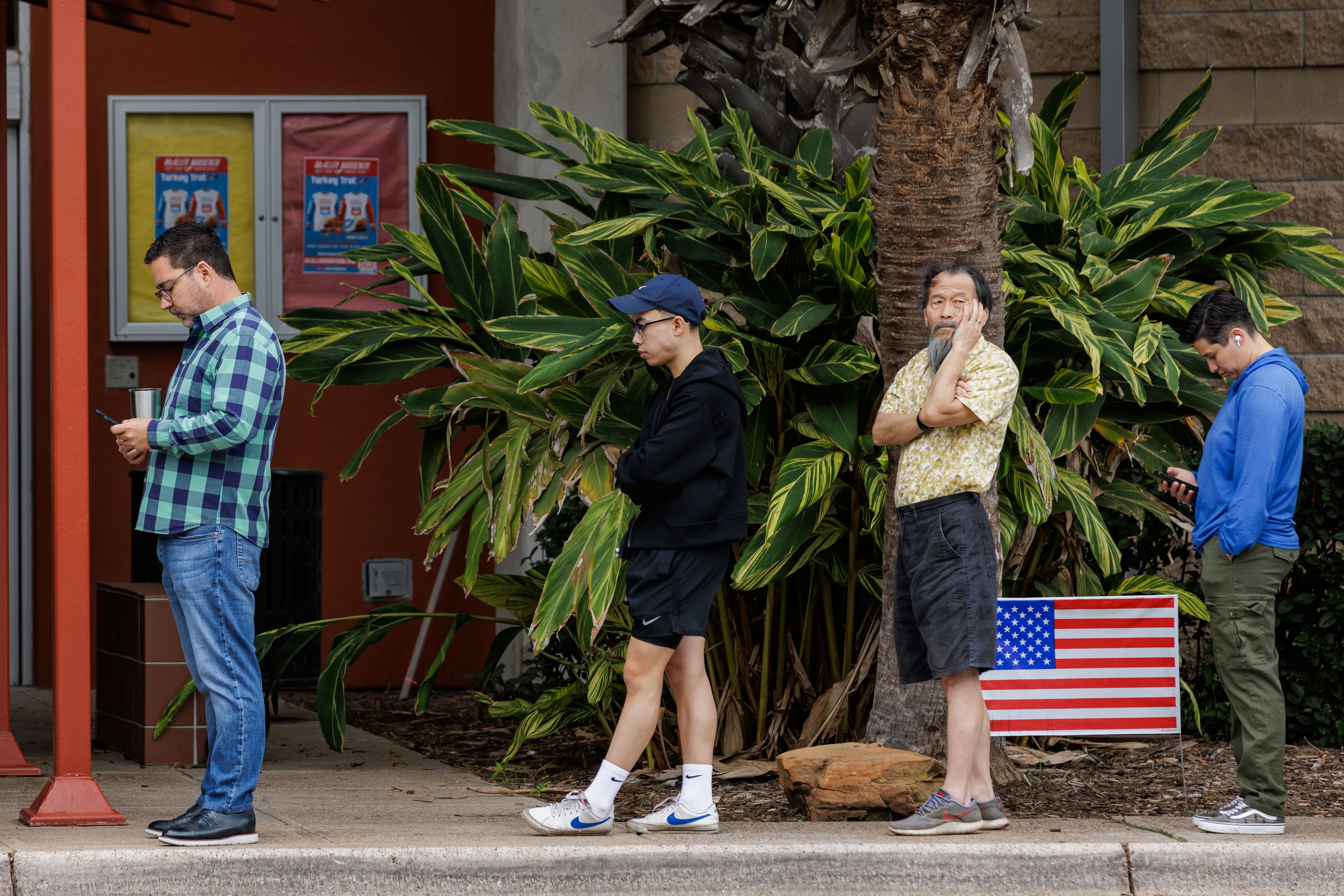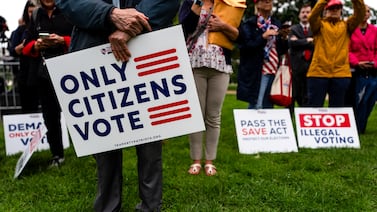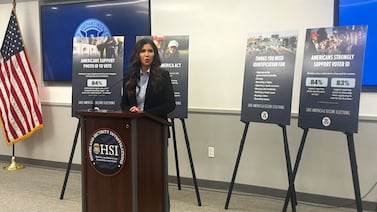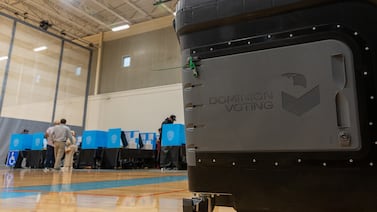Votebeat is a nonprofit news organization reporting on voting access and election administration across the U.S. Sign up for Votebeat Texas’ free newsletter here.
Texas’ top election official has received a U.S. Justice Department request for access to the state’s list of registered voters, another in a series of letters going out to states demanding information about voter rolls and election procedures.
Along with the voter roll, the department’s Aug. 7 letter to Texas asks for information on how the state is complying with federal requirements for voter list maintenance. It specifically requests information on canceled voter records, records of noncitizens removed from the rolls, voter history, and a list of state and local election officials responsible for voter list maintenance since November 2022. The department gave the state 14 days to respond.
Christina Adkins, director of the election division at the Texas Secretary of State’s Office, told Votebeat that the state was notified in July that such a request was coming.
Under the Trump administration, the Justice Department has been pushing states to turn over voter registration information on the grounds that it’s needed to support enforcement of election law. It has sent similar requests to Michigan, Pennsylvania, Colorado, Maine, and others.
The information requests are expected ultimately to go to all 50 states. Some experts and state officials have raised concerns over the legality of the effort and whether it could compromise voter privacy protections. Maine state officials declined to turn over the data.
Adkins told a group of Texas election officials during a training session in Round Rock on Tuesday that her agency has been in contact with the Justice Department. She said Texas has informed the department that it can’t yet provide the voter roll, because it’s shifting to an upgraded version of its voter registration management system, known as Texas Election Administration Management, or TEAM.
Most Texas counties use TEAM to manage their voter rolls and have been testing and training on the upgraded system.
“At some point, the state will have to provide that information to the DOJ. But I’m not doing it yet,” Adkins told election officials. “I don’t believe that we have what they’re asking for with respect to this list, because we are in this transition period,” with some registrations still waiting to be processed and work on list maintenance still pending.
Adkins told election officials Tuesday that the state would handle the request from the Justice Department the same way it would a public-records request, as several other states have.
But Justin Levitt — a professor at Loyola Law School and former DOJ official — said the federal government faces a stricter standard in accessing state records than members of the public.
While federal law allows the public to request certain election records, he said, that does not extend to personally identifiable information, which courts have afforded added protection. Sensitive data, such as information about domestic violence survivors or public officials, is also protected under state law, and courts have repeatedly affirmed these limits.
Levitt said several states misinterpret DOJ requests as standard public-records inquiries, but in reality, “what the DOJ can get, in this circumstance, is less” because of restrictions under the Privacy Act of 1974.
That law, he explained, requires the federal government to justify why it is collecting personal data, and explain how it will be stored, and who will have access — with additional safeguards if the data could be matched to other systems in ways that affect federal benefits. If a state believes the data will be used that way, it cannot legally provide it to federal authorities. The Privacy Act also prohibits states from distributing certain data to the federal government unless strict notice and procedural requirements are met, with criminal penalties for violations.
Levitt warned that states that have already handed over their voter rolls “may be abetting a violation of federal law.” and said he believes that with the Justice Department’s information requests framed as they are now, “the federal government is absolutely violating the law.”
The DOJ has said its effort is aimed at enforcing voting rights laws and improving public faith in elections. The agency would not answer questions about the applicability of the privacy act.
Texas Secretary of State officials declined to comment on whether the agency is considering Privacy Act protections as it works to fulfill the request.
Natalia Contreras is a reporter for Votebeat in partnership with the Texas Tribune. Contact Natalia at ncontreras@votebeat.org.





